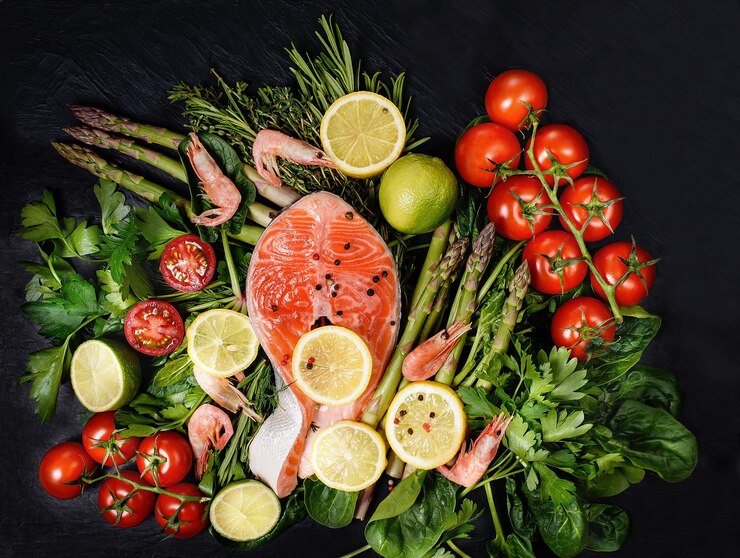Eating Like a Pro: Inside the Diets of Top Football Players

How Professional Athletes Eat
Introduction
Professional athletes are among the most disciplined individuals when it comes to their diet and nutrition. Their eating habits are tailored to enhance performance, aid recovery, and maintain peak physical condition. This blog will delve into the dietary practices of professional athletes, with a focus on the specific diets of famous football players. Additionally, we will outline an optimal diet for a 70 kg athlete.
Importance of Diet in Athletic Performance
Athletic performance is influenced by several factors, including training, rest, and nutrition. Proper nutrition:
- Provides the necessary energy for training and competition.
- Aids in recovery and muscle repair.
- Helps maintain optimal body composition.
- Enhances overall health and immune function.
Macronutrient Breakdown
Athletes typically focus on a balanced intake of macronutrients:
- Carbohydrates: The primary energy source, crucial for high-intensity training and endurance.
- Proteins: Essential for muscle repair and growth.
- Fats: Important for long-term energy and overall cell function.
Micronutrients and Hydration
- Vitamins and Minerals: Essential for metabolic processes, immune function, and bone health.
- Hydration: Critical for maintaining performance, especially in endurance sports.
Famous Football Players' Diets
Cristiano Ronaldo
Cristiano Ronaldo, known for his exceptional fitness, follows a strict diet:
- Breakfast: Whole-grain cereal, egg whites, fruit, and yogurt.
- Snacks: Fruit, nuts, and protein shakes.
- Lunch: Chicken or fish, with vegetables and whole grains.
- Afternoon Snack: Tuna roll or fresh fruit.
- Dinner: Lean meats, such as chicken or fish, with salad and vegetables.
- Evening Snack: Often includes cottage cheese or a protein shake.
Ronaldo also emphasizes the importance of drinking plenty of water and avoiding sugary foods.
Lionel Messi
Lionel Messi's diet is designed to support his agility and endurance:
- Breakfast: Whole grains, fresh fruit, and a natural smoothie.
- Mid-Morning Snack: Nuts and seeds.
- Lunch: Chicken or fish with quinoa or brown rice, and vegetables.
- Afternoon Snack: Fresh fruit or whole grain toast with avocado.
- Dinner: Lean meats with vegetables, and occasionally, pasta.
- Evening Snack: Protein-rich snacks like Greek yogurt.
Messi also focuses on staying hydrated and avoiding processed foods.
Optimal Diet for a 70 kg Athlete
An optimal diet for a 70 kg athlete would focus on balanced nutrition to support training, performance, and recovery. Here's a sample daily meal plan:
Breakfast
- Oatmeal: Made with rolled oats, topped with fresh berries, and a drizzle of honey.
- Eggs: Two scrambled eggs with spinach and tomatoes.
- Beverage: A glass of orange juice or a smoothie with spinach, banana, and protein powder.
Mid-Morning Snack
- Greek Yogurt: With a handful of mixed nuts and seeds.
- Fruit: An apple or a banana.
Lunch
- Grilled Chicken: With a quinoa salad, including mixed greens, cherry tomatoes, cucumber, and a light vinaigrette.
- Whole Grain Bread: One slice with avocado spread.
Afternoon Snack
- Hummus: With carrot and celery sticks.
- Protein Shake: Made with protein powder, almond milk, and a banana.
Dinner
- Baked Salmon: With a side of roasted sweet potatoes and steamed broccoli.
- Brown Rice: One serving.
Evening Snack
- Cottage Cheese: With sliced peaches or another fruit of choice.
- Almonds: A small handful.
Conclusion
The diet of professional athletes is meticulously planned to support their demanding training and performance schedules. By following a balanced diet rich in whole foods, lean proteins, and healthy fats, athletes can optimize their performance and recovery. Adopting these principles can benefit anyone looking to improve their fitness and health.